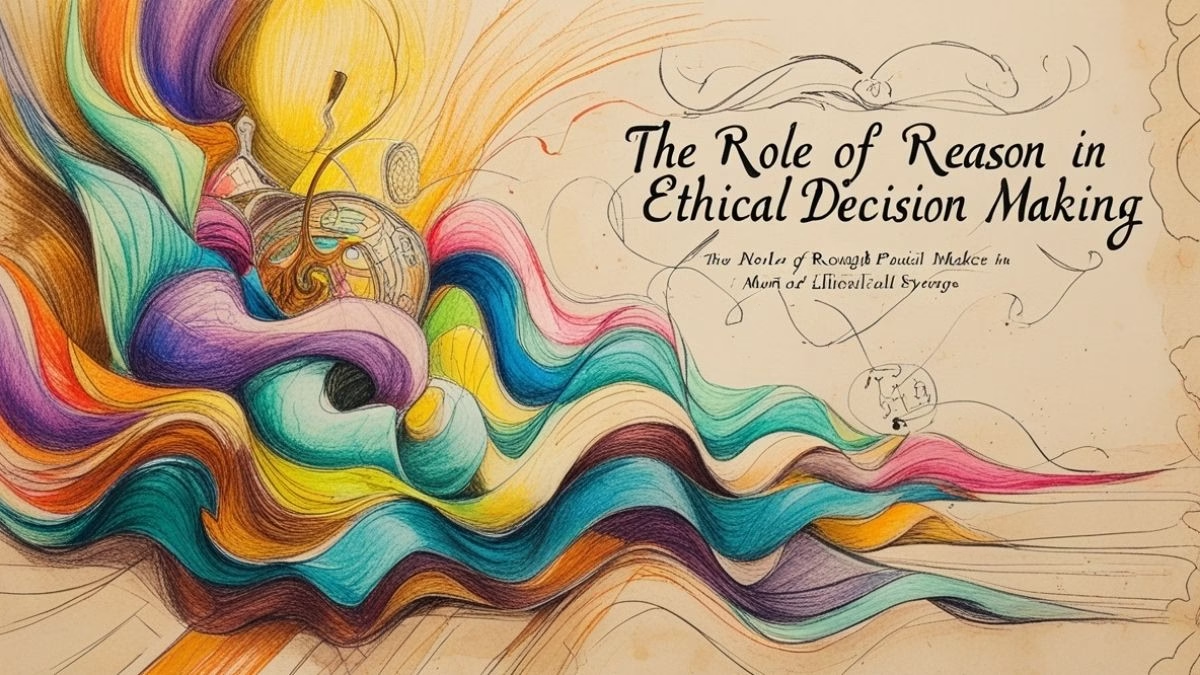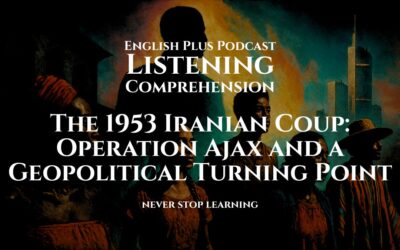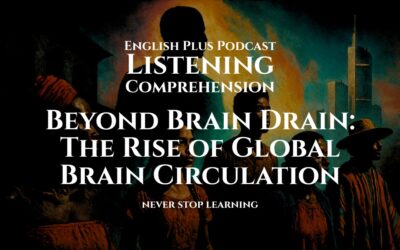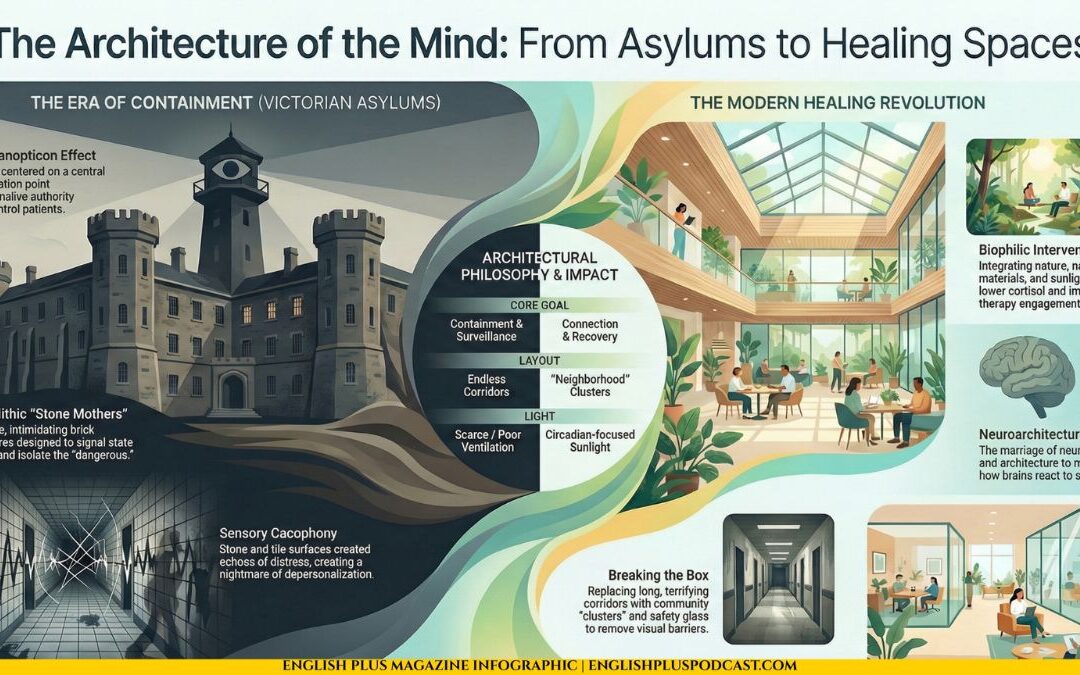A Guide to Effective Listening for Your Exam
Hello and welcome. In high-stakes international exams, the listening section tests more than just your vocabulary; it assesses your ability to understand complex arguments, follow logical reasoning, and identify the speaker’s stance. The audio clips are often academic in nature, just like the one you are about to hear.
To succeed, you need to become an active, analytical listener. Here are some tips tailored for this kind of challenge:
- Identify the Core Argument: From the very beginning, try to pinpoint the central question or main argument of the lecture. Is the speaker explaining a concept, comparing theories, or arguing a particular point of view? Everything else will likely support this core idea.
- Listen for Structure and Transitions: Academic talks are structured. The speaker will use transition words and phrases to signal their direction. Listen for phrases like “Consequently,” “In contrast,” “A primary example is,” and “To illustrate this point.” These are your road signs.
- Distinguish Between Fact and Opinion: The speaker may present established facts, but they will also offer their own interpretations or the opinions of different philosophers. Your task is to differentiate between them. Questions will often test if you can identify what the speaker is presenting as a fact versus what is a theoretical position.
- Focus on Concepts, Not Just Facts: While names and dates can be important, it’s more crucial to understand the concepts being discussed. In today’s lecture on ethics, focus on understanding the different ethical frameworks rather than memorizing every philosopher’s name perfectly.
- Anticipate the Questions: As you listen, think about what a test-maker would ask. If the speaker compares two theories, a question about their differences is likely. If they present a problem, a question about the proposed solution is probable.
Today’s lecture delves into the philosophical topic of ethics, specifically the role that reason plays in our moral judgments. This requires careful attention to abstract ideas and logical flow. Good luck!
Listening Audio
Listening Transcript: Please do not read the transcript before you listen and answer the questions.
Good morning. Today, we delve into a fundamental question in moral philosophy: what is the role of reason in ethical decision-making? When we declare an action to be right or wrong, are we expressing a deeply felt emotion, or are we making a judgment grounded in logical, objective principles? This debate has been at the heart of ethics for centuries, broadly pitting two major camps against each other: those who champion reason as the ultimate arbiter of morality, and those who argue for the primacy of emotion or sentiment.
Let’s begin with the rationalist tradition, most powerfully articulated by the 18th-century philosopher Immanuel Kant. For Kant, the entire foundation of morality had to be based on reason, and reason alone. He was deeply skeptical of basing ethics on feelings or consequences, as these are unreliable and vary from person to person, and situation to situation. He wanted to find a moral law that was universal, one that would apply to all rational beings, in all places, at all times. He found this in what he called the “Categorical Imperative.”
The most famous formulation of the Categorical Imperative is this: “Act only according to that maxim whereby you can at the same time will that it should become a universal law.” What does this mean in practice? It means that before you act, you must ask yourself: “Would I be willing to live in a world where everyone acted this way?” For example, if you consider making a false promise to get a loan, you must ask: “Could I rationally will a world where everyone makes false promises?” The answer, Kant argues, is no. In such a world, the very institution of promising would collapse. No one would trust any promise, so your own false promise would become meaningless. The act is therefore wrong because it is logically self-defeating when universalized. It fails the test of pure reason. For Kantians, reason isn’t just a tool to get what we want; it is the very source of moral duty. The moral worth of an action lies in the intention behind it, specifically, whether it was performed out of a sense of duty dictated by reason.
However, this staunchly rationalist view was challenged by philosophers like David Hume. Hume famously declared, “Reason is, and ought only to be the slave of the passions.” For Hume, the starting point of morality is not a cold, detached logical principle. It is sentiment, or feeling. We see an act of cruelty, and we feel a sense of disapprobation. We witness an act of kindness, and we feel a sense of approval. These feelings, which Hume called “moral sentiments,” are the raw data of our ethical lives.
According to Hume, reason’s role is purely instrumental. It doesn’t tell us what is right or wrong; our feelings do that. Reason’s job is to figure out the best way to achieve the ends that our passions have already set for us. For instance, your sentiment might tell you that alleviating suffering is a good thing. Reason then steps in to calculate the most effective way to do so—perhaps by donating to a particular charity or by volunteering your time. Reason helps us understand the consequences of actions and the causal links in the world, but it cannot, on its own, motivate us to act morally. The initial spark, the motivation, must come from passion. Without that feeling of empathy or compassion, the most brilliant logical argument for charity would leave us cold and unmoved.
So we have two starkly contrasting views: Kant’s view of reason as the autonomous lawgiver of morality, and Hume’s view of reason as the servant to our moral feelings. In the 20th and 21st centuries, this debate has evolved. Many contemporary ethicists and psychologists propose a more integrated model, suggesting that the opposition between reason and emotion is a false dichotomy. They argue that effective moral decision-making requires both.
Consider the work of cognitive scientists like Joshua Greene. He has used fMRI scans to study the brains of people as they grapple with ethical dilemmas, such as the famous “trolley problem.” In this thought experiment, you see a runaway trolley about to hit five people tied to a track. You can pull a lever to divert the trolley to another track, where it will hit only one person. Most people say they would pull the lever. This, Greene argues, is a rational, utilitarian calculation: saving five lives at the cost of one is the logical choice.
But then the scenario is changed. Now, you are on a footbridge overlooking the track, next to a very large person. The only way to save the five people is to push the large person off the bridge and onto the track, stopping the trolley. From a purely utilitarian perspective, the outcome is identical—one person dies to save five. Yet, most people have a strong emotional aversion to pushing someone to their death. Greene’s research suggests that different parts of our brain are at work here. The more impersonal, calculative task of pulling a lever activates areas associated with cognitive control and reasoning. The “up close and personal” act of pushing someone engages emotional centers. This suggests that our moral judgments are the product of a complex interplay between distinct neural systems.
This integrated view posits that our emotions are not just random, unreliable impulses as Kant feared. They are often rapid, intuitive, and efficient responses shaped by evolution and social learning to guide us in a complex social world. They can act as moral alarms, alerting us to situations that require ethical attention. Reason then comes in to scrutinize these initial emotional responses. It can override them if they are found to be based on prejudice or faulty information. It can help us weigh competing moral considerations and justify our final decision to ourselves and others in a principled way. So, rather than being a slave to the passions, reason can be a partner, a critical friend that helps to shape and refine our moral sentiments into coherent and defensible ethical judgments. The challenge, then, is not to choose between reason and emotion, but to cultivate a virtuous relationship between them.
Listening Quiz
Keywords & Phrases
Primacy of emotion:
What it means: ‘Primacy’ means the state of being first or most important. So, this phrase refers to the belief that emotion is the most fundamental and important element in a process, in this case, making moral decisions.
How it was used in the listening: The lecturer used this to define one of the two major sides in the ethical debate. “…those who argue for the primacy of emotion or sentiment.”
Staunchly rationalist:
What it means: ‘Staunchly’ is an adverb meaning very loyal and committed. ‘Rationalist’ refers to someone who believes that reason is the best source of knowledge and justification. Together, the phrase describes a very strong, uncompromising belief in reason.
How it was used in the listening: This was used to describe Kant’s extreme position that morality must be based only on reason. “However, this staunchly rationalist view was challenged by philosophers like David Hume.”
Logically self-defeating:
What it means: This describes an idea or action that would destroy its own foundation if it were adopted universally. It contradicts itself in a logical way.
How it was used in the listening: The lecturer used this to explain Kant’s argument against making false promises. If everyone did it, the concept of a promise would become meaningless, thus defeating the purpose of making a promise in the first place. “The act is therefore wrong because it is logically self-defeating when universalized.”
Purely instrumental:
What it means: This means that something’s role is only useful as a tool (‘instrument’) to achieve something else. It has no value or purpose on its own.
How it was used in the listening: This phrase described Hume’s view of reason. He believed reason doesn’t set goals; it’s just a tool we use to reach the goals our emotions have already set. “According to Hume, reason’s role is purely instrumental.”
Starkly contrasting:
What it means: ‘Starkly’ means in a way that is very severe, clear, and plain. This phrase is used to emphasize that two views are extremely different from each other.
How it was used in the listening: The lecturer used this to summarize the deep opposition between Kant’s and Hume’s philosophies. “So we have two starkly contrasting views…”
False dichotomy:
What it means: A dichotomy is a division into two mutually exclusive parts. A ‘false dichotomy’ is a logical fallacy where a situation is presented as having only two options, when in fact there are other possibilities.
How it was used in the listening: This was used to introduce the modern view that we don’t have to choose between reason or emotion, because they can work together. “…the opposition between reason and emotion is a false dichotomy.”
Utilitarian calculation:
What it means: This refers to the process of thinking based on utilitarianism, the ethical theory that the best action is the one that maximizes overall happiness or “utility.” It’s a cost-benefit analysis for morality.
How it was used in the listening: This described the thinking process in the first trolley problem scenario, where saving five lives by sacrificing one is seen as a logical, positive outcome. “This, Greene argues, is a rational, utilitarian calculation…”
Emotional aversion:
What it means: ‘Aversion’ is a strong feeling of dislike. An ’emotional aversion’ is a deep, gut-level feeling that something is wrong or repulsive, which is not necessarily based on a logical calculation.
How it was used in the listening: The speaker used this to describe the common reaction to the idea of physically pushing someone off a bridge in the second trolley problem scenario. “Yet, most people have a strong emotional aversion to pushing someone to their death.”
Scrutinize:
What it means: This verb means to examine or inspect something very closely and critically.
How it was used in the listening: In the modern integrated view, this is the job of reason. Our emotions provide an initial gut reaction, and reason then scrutinizes that reaction to see if it holds up. “Reason then comes in to scrutinize these initial emotional responses.”
Coherent and defensible:
What it means: ‘Coherent’ means logical and consistent. ‘Defensible’ means capable of being justified or supported with arguments. A ‘coherent and defensible’ judgment is one that is not only internally logical but can also be explained and argued for in a convincing way.
How it was used in the listening: This phrase describes the ideal outcome of the partnership between reason and emotion – a final ethical decision that is well-reasoned and justifiable. “…refine our moral sentiments into coherent and defensible ethical judgments.”












0 Comments